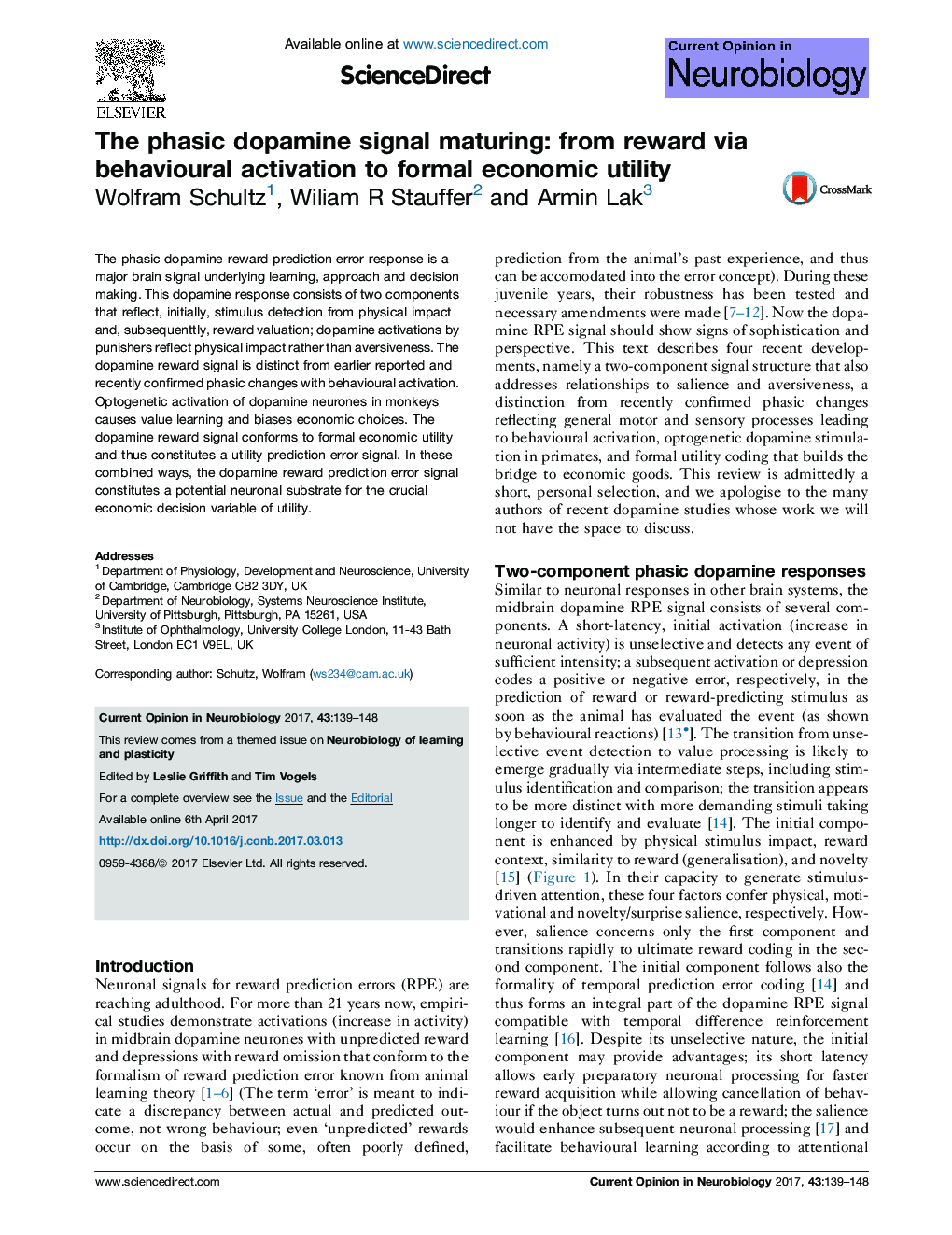| کد مقاله | کد نشریه | سال انتشار | مقاله انگلیسی | نسخه تمام متن |
|---|---|---|---|---|
| 6265988 | 1614506 | 2017 | 10 صفحه PDF | دانلود رایگان |
- Two-component dopamine response structure explains lack of activation by aversiveness.
- Other phasic dopamine changes reflect behavioural activation.
- Dopamine reward prediction error signalling codes formal economic utility.
- Optogenetic dopamine activation affects learning and economic choices of primates.
The phasic dopamine reward prediction error response is a major brain signal underlying learning, approach and decision making. This dopamine response consists of two components that reflect, initially, stimulus detection from physical impact and, subsequenttly, reward valuation; dopamine activations by punishers reflect physical impact rather than aversiveness. The dopamine reward signal is distinct from earlier reported and recently confirmed phasic changes with behavioural activation. Optogenetic activation of dopamine neurones in monkeys causes value learning and biases economic choices. The dopamine reward signal conforms to formal economic utility and thus constitutes a utility prediction error signal. In these combined ways, the dopamine reward prediction error signal constitutes a potential neuronal substrate for the crucial economic decision variable of utility.
Journal: Current Opinion in Neurobiology - Volume 43, April 2017, Pages 139-148
